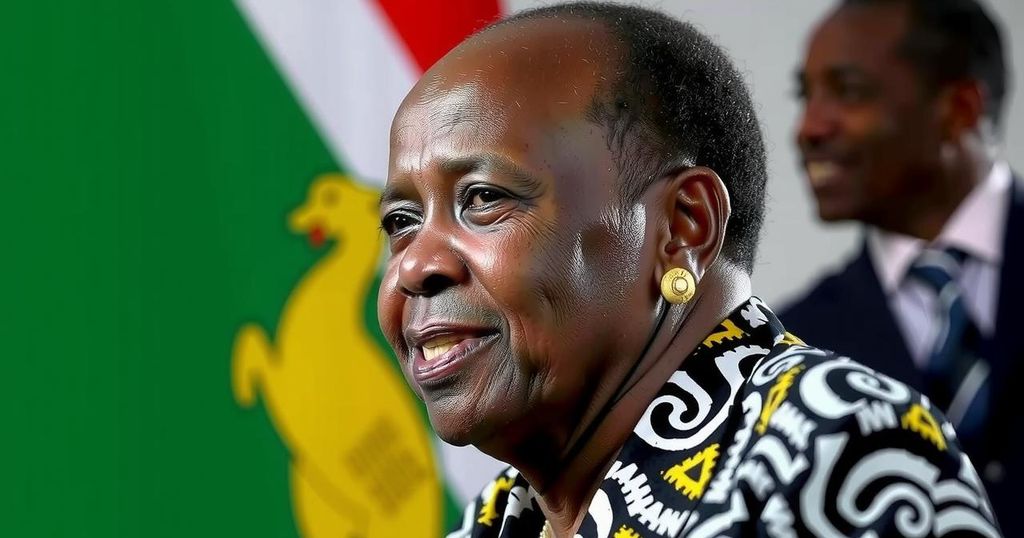Botswana’s President Mokgweetsi Masisi conceded defeat in the recent election, ending 58 years of BDP rule as the opposition coalition UDC emerged victorious. This change reflects growing socio-economic discontent, particularly among the youth, and serves as a warning for long-ruling parties amid global economic downturns.
Botswana has witnessed a significant political shift as President Mokgweetsi Masisi acknowledged defeat in the recent election, resulting in the ruling Botswana Democratic Party (BDP) losing its parliamentary majority for the first time in 58 years. Preliminary results indicated that the coalition opposition, known as the Umbrella for Democratic Change (UDC), secured a commanding lead, with its leader, Duma Boko, poised to assume the presidency. As more than half of the constituencies were reported, it was revealed that the UDC had claimed 26 seats out of 61, in stark contrast to the BDP’s meager three seats. This electoral outcome stems from growing socio-economic discontent, particularly among the youth, who have increasingly voiced their frustrations relating to high unemployment rates, which now stand at 28%, and diminishing economic growth, exacerbated by a downturn in the global diamond market. During a press conference following the election results, President Masisi expressed his respect for the voters’ decision. “Although I wanted to stay on as your president, I respect the will of the people and I congratulate the president-elect. I will step aside and I will support the new administration.” The atmosphere in the capital city, Gaborone, remained tranquil on Friday morning, though small gatherings of jubilant opposition supporters could be observed celebrating the historic event. Many citizens resonated with the change in leadership, including 23-year-old student Mpho Mogorosi, who expressed pride in being a part of this transformative moment, stating, “I did not ever think I would witness this change in my life. The BDP had stayed too long in power and I am proud to be a part of the people that removed them for a better Botswana.” Botswana’s electoral results mark a noteworthy trend in southern Africa, following the defeat of another long-standing party, South Africa’s African National Congress, earlier this year. As neighboring Namibia prepares for elections amidst expectations of strong opposition resistance to the incumbents, analysts suggest that the outcome of the election in Botswana serves as a critical warning to long-ruling political parties. Zaynab Hoosen, an Africa analyst at Pangea-Risk, stated, “The outcome of Botswana’s elections should serve as a warning to long-time ruling parties across southern Africa and beyond that without economic progress and employment opportunities, political dominance will falter.”
Botswana’s political landscape has been dominated by the Botswana Democratic Party since the country gained independence from Britain in 1966. The recent elections concluded a lengthy period of unchallenged rule, reflecting deep-rooted socio-economic issues, particularly among the youth. As Botswana’s economy relies heavily on diamond revenues, fluctuations in the global diamond market have profoundly impacted economic growth and employment rates, leading to public discontent concerning governance. Recent electoral trends in Southern Africa indicate a growing shift away from long-standing political establishments, raising concerns for ruling parties facing economic hardships.
The recent elections in Botswana have culminated in the end of a 58-year era under the Botswana Democratic Party, marking a significant political transformation fueled by socio-economic grievances. The victory of the Umbrella for Democratic Change highlights the electorate’s desire for change and serves as a cautionary tale for other long-ruling parties in the region. With rising unemployment and discontent, the priority for future administrations will be to address economic issues to maintain public support.
Original Source: www.cnn.com






